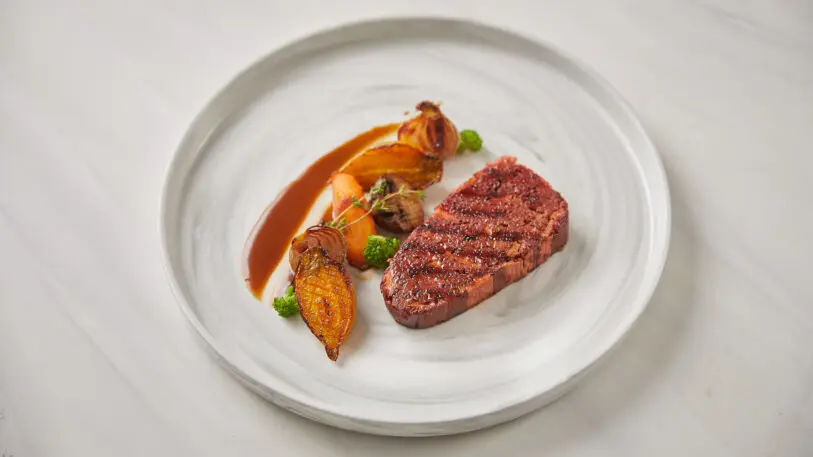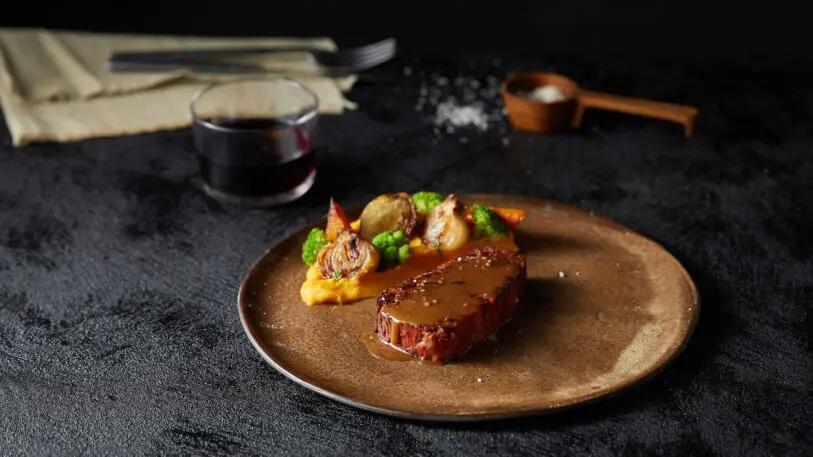Inside a lab in Rehovot, Israel, a 3D printer the size of an industrial refrigerator is busy printing plant-based steaks. Redefine Meat, the startup that developed the technology, sees it as the next step for the world of alternative protein: If companies like Impossible Foods have created plant-based burgers that are meaty enough to tempt omnivores, now the industry wants options for realistic whole cuts of faux meat.
The startup, launched by cofounders who met while developing digital printers at HP, created custom 3D printers that aim to replicate meat by printing layers of what they call “alt-muscle,” “alt-fat,” and “alt-blood,” forming a complex 3D model. “Real meat is an extremely complicated product, where much of the sensory experience comes from the matrix,” says cofounder and CEO Eshchar Ben-Shitrit. “Meat is not just proteins, fats, and water. . . . Beef, especially, is a product that has been ‘built’ for years by the cow.” (Other startups are also working on the challenge of making realistic cuts of meat, some through the use of mycelium, the root-like fibers in mushrooms.)

The team, which closed a seed round last year led by CPT Capital, an early investor in Beyond Meat and Impossible Foods, has been working with chefs, butchers, food technologists, and taste experts to try to recreate the texture and mouthfeel of steak. “We are working on recreating the entire range of meat products coming from animals,” says Ben-Shitrit. “However, steak is the strongest and most meaningful symbol of what is ‘meat.’ It’s also the most challenging product from a technical perspective. Not only does it have a very unique structure, texture, and flavor, but from a culinary perspective, it doesn’t have a bun or lots of covering elements to mask the sensory experience—it’s usually cooked very simply.”

The startup will begin testing the printers at restaurants later this year, and then plans to ramp up production for distribution in 2021. It believes that it can help accelerate the changes that are already happening in the food industry. “We believe in the next 20 years we’ll see a massive shift towards replacing animals in the food supply chain,” he says. “It will happen in eggs, dairy, and meat, but the biggest problem is no doubt meat.” In the longer term, he thinks the industry could completely transform. “One hundred years from now, our great-grandkids will find it shocking that we needed to raise and kill animals for food.”
Recognize your brand’s excellence by applying to this year’s Brands That Matter Awards before the early-rate deadline, May 3.
